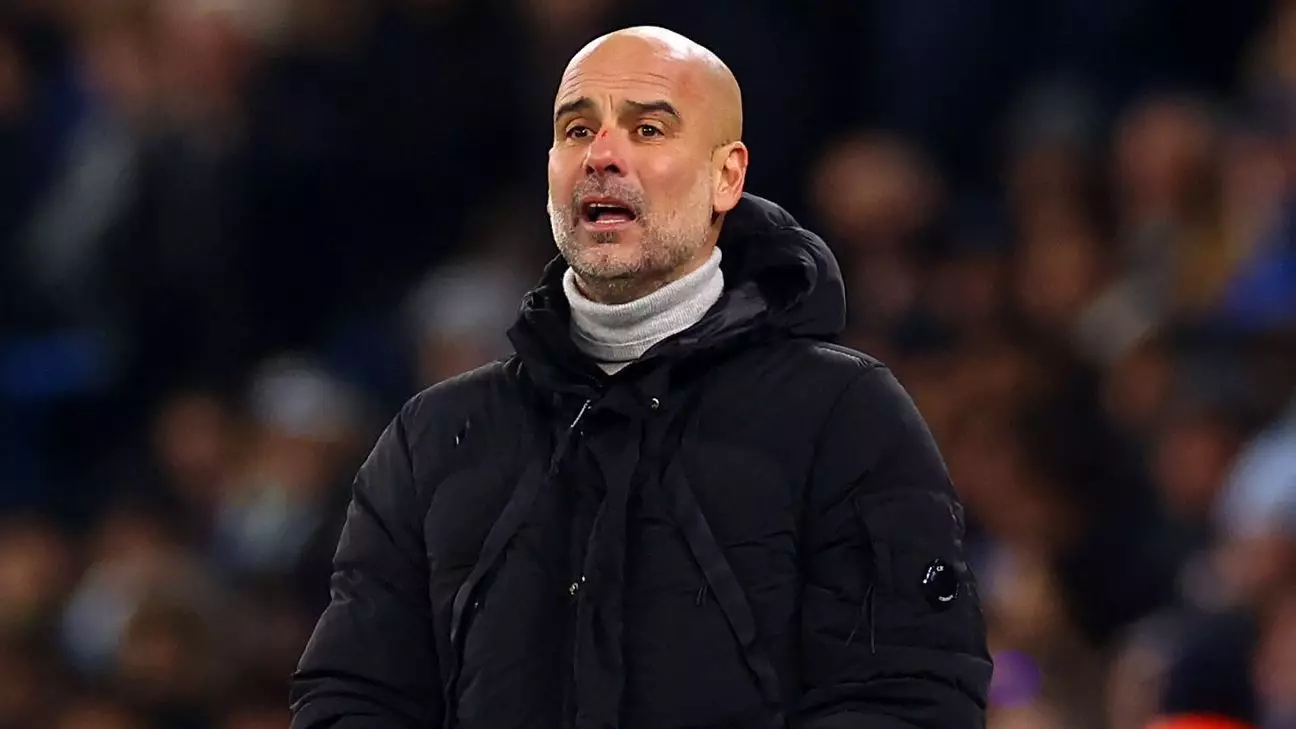In the wake of Manchester City’s disheartening 3-3 draw against Feyenoord, manager Pep Guardiola found himself at the center of a media storm following an unfortunate comment regarding his physical state. During a post-match press conference, Guardiola, with visible scrapes on his face, casually remarked, “I want to harm myself.” Initially taken humorously in the high-pressure environment of football, the statement quickly garnered negative attention, prompting the need for clarification. Such moments underline the immense pressure coaches experience while managing elite teams, which can sometimes lead to unguarded remarks that are misconstrued.
The Importance of Mental Health Awareness
On Wednesday, in a bid to manage the fallout from his unintended quip, Guardiola took to social media to provide a much-needed context. He explained that his remarks were made in jest, stemming from a sudden and unexpected question about the minor injuries he had incurred. Moreover, he emphasized that his comments were never intended to make light of the serious issue of mental health. By mentioning support lines like the Samaritans, Guardiola shifted the focus of the discussion from his misinterpreted humor to the importance of mental wellness, reminding fans and individuals alike of the resources available for those struggling with mental health issues.
Manchester City currently finds itself in a dire situation, experiencing an unprecedented five-game losing streak across all competitions for the first time under Guardiola’s stewardship. The recent match against Feyenoord not only stripped them of a comfortable lead but also highlighted vulnerabilities that had long been concealed behind their past successes. The record of losing a three-goal lead as late as the 75th minute has never before been seen in the Champions League, reflecting a concerning collapse in team morale and efficiency. This recent downward trajectory poses existential questions about Guardiola’s strategies and squad resilience, particularly within the realm of elite football.
As the pressure mounts both on Guardiola and his team, the approaching fixture against Premier League leaders Liverpool could serve as a pivotal moment in City’s current campaign. Such high-stakes matches often reveal the mettle of a team, but for City, there is a fear that the psychological scars from recent performances could weigh heavily on them. If they fail to turn fortunes around, one can only speculate about the ramifications for Guardiola’s position and the squad’s overall coherence, especially with so many important matches on the horizon.
Guardiola’s experience serves as a reflection of the broader challenges that managers face within the high-octane environment of professional football. The balancing act of maintaining a coherent message while managing a team’s expectations, coupled with the responsibility of addressing mental health, highlights the complexities of the role. As fans and pundits alike watch closely, the hope remains that Guardiola will not only navigate this rough patch but also foster a culture of open dialogue regarding mental health within the sport, leading to a deeper understanding and compassion for those in high-pressure positions.

Leave a Reply